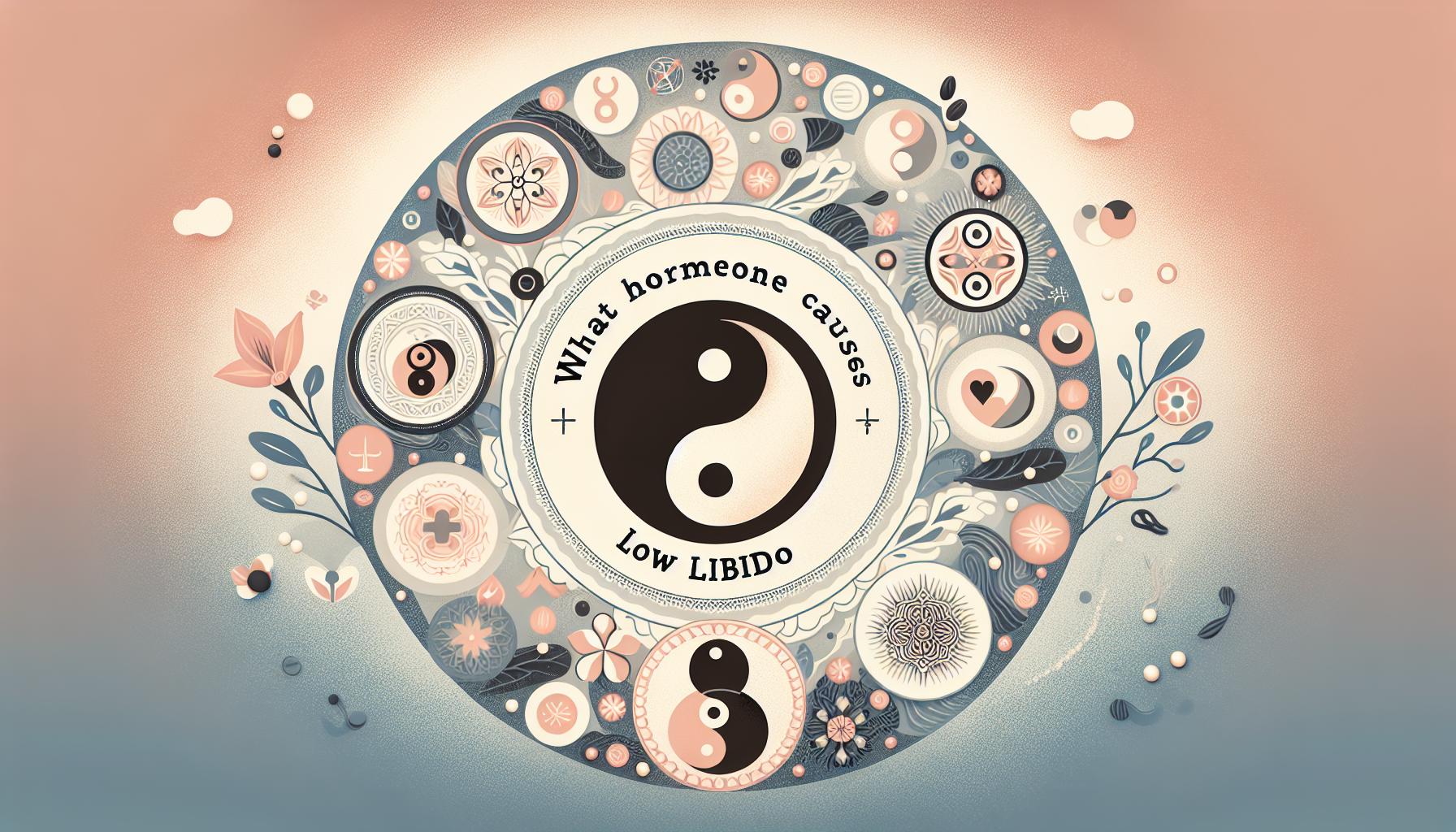
Unveiling the Enigma: Hormone Responsible for Low Libido
Everyone has heard the oft-used phrase, “not tonight dear, I have a headache,” right? Well, while stress, fatigue, or simply not being in the mood could be the reasons, sometimes the shadowy figure could be a hormone stealthily impacting your libido. But what hormone causes low libido? Simply put, lower levels of testosterone in both men and women can lead to a decreased sex drive. However, it’s not a one-hormone show, and hormones like estrogen, progesterone, and even stress hormones can play pivotal roles too. In this comprehensive exploration, we’ll delve deeper into this, helping you understand how hormones affect libido and what you can do if you’re feeling less frisky.
Testosterone Tussles: Why Testosterone Matters
Testosterone takes center stage when talking about libido. This mighty hormone is the keystone of sexual desire in both males and females. It’s like the coal to the fire of desire; without enough of it, the flame can quickly fizzle out.
The Testosterone Connection
Testosterone subtly whispers in the body’s ear, encouraging both physical and psychological aspects of sexual desire. When its levels falter, you might experience a notable downturn in your desire for intimacy.
The Estrogen Edge and Progesterone Play
Never underestimate the estrogen edge and progesterone play in this intricate hormonal harmony. These two hormones, prominent in women, also have their parts in the libido story.
Estrogen and Libido
Estrogen is like the unsung hero of a woman’s sexual desire. When it’s in ample supply, it effortlessly keeps vaginal tissues healthy, guaranteeing satisfying and comfortable intercourse. Low levels may lead to discomfort, hence decreasing sexual interest.
Unmasking Stress: Are Your Adrenal Hormones in Overdrive?
The tricky hormone cortisol, often nicknamed the “stress hormone,” can be a libido hammerlock. Under stress, the body produces more cortisol, which can lead to a drop in testosterone levels.
Adrenals and Libido
These tiny adrenal glands on top of your kidneys play a huge role in your sex drive. More specifically, if the adrenals are overworked and overproducing cortisol, they have less capacity to produce hormones like testosterone, acting as a desire-dasher.
The Balance Act: The Intricate Hormonal Harmony
One thing is crystal clear: when it comes to libido, there is no solo player. All the hormones we’ve talked about work together, like an intricate dance of desire.
Bringing Back Balance
Maintaining hormonal balance is paramount for a healthy libido. From eating healthy and exercising to managing stress levels and ensuring adequate sleep, there’s a lot you can do to keep your hormones happy and your libido lively.
Conclusion: A Symphony of Hormones
So, to put it in a nutshell, the answer to “What hormone causes low libido?” is more complex than pointing at a single perpetrator. It’s more like a symphony of hormones, where each one has its part to play. While lower testosterone levels are generally the cause, the disruption in your body’s hormonal balance, provoked by excess cortisol or too little estrogen or progesterone in women, can also dampen desire.
Frequently Asked Questions
1. What is testosterone and how does it impact libido?
Testosterone is a hormone produced majorly by men and, to a lesser extent, by women. Appropriate levels contribute to a healthy sex drive, with lower levels often causing reduced libido.
2. What role do stress hormones play in causing low libido?
Stress hormones, particularly cortisol, can negatively impact libido. If your body is in constant ‘fight or flight’ mode, producing extra cortisol, it might cause a drop in sex drive.
3. How do estrogen and progesterone affect a woman’s sex drive?
Both hormones are crucial in a woman’s sexual health. Estrogen helps to maintain the health of vaginal tissues, making intercourse comfortable, while progesterone can help boost the libido and mood.
4. Can a hormone imbalance be the cause of my low libido?
Yes, hormonal imbalances can significantly impact your sex drive. Particularly, an imbalance in testosterone, cortisol, estrogen, and progesterone can result in lowered libido.
5. How can I increase my libido if it’s low due to hormonal issues?
There are several things you can do: eat a balanced diet, get enough exercise, ensure adequate sleep each night, manage stress levels, and consult with a healthcare provider or a qualified endocrinologist. They can provide further insights and potential treatment options.

